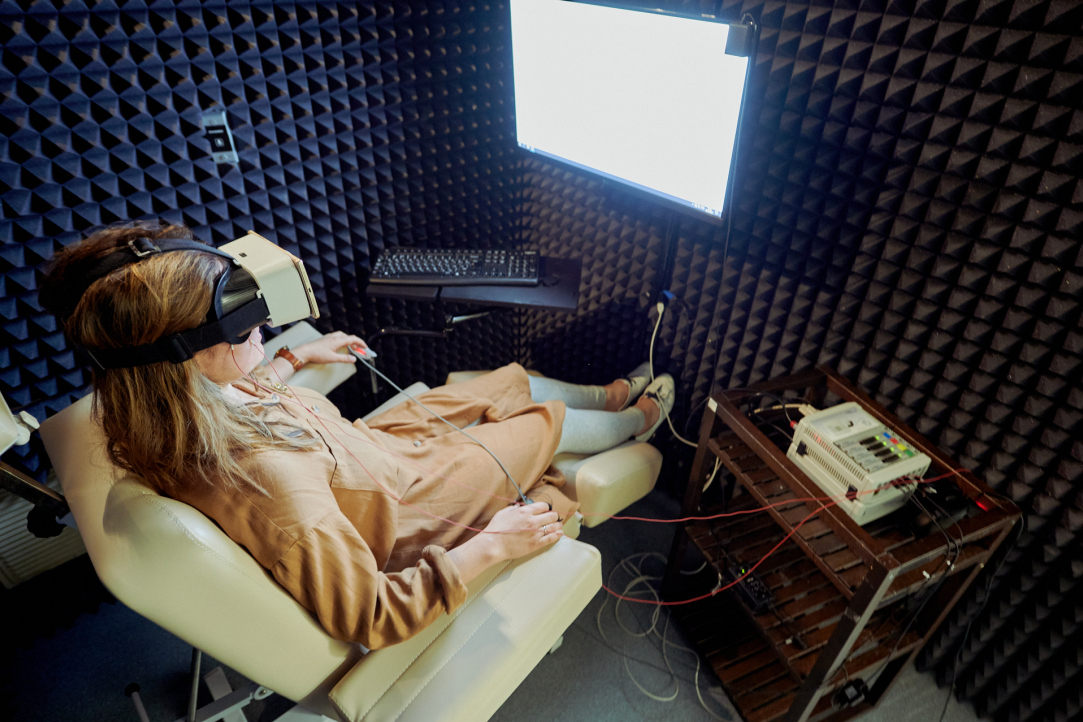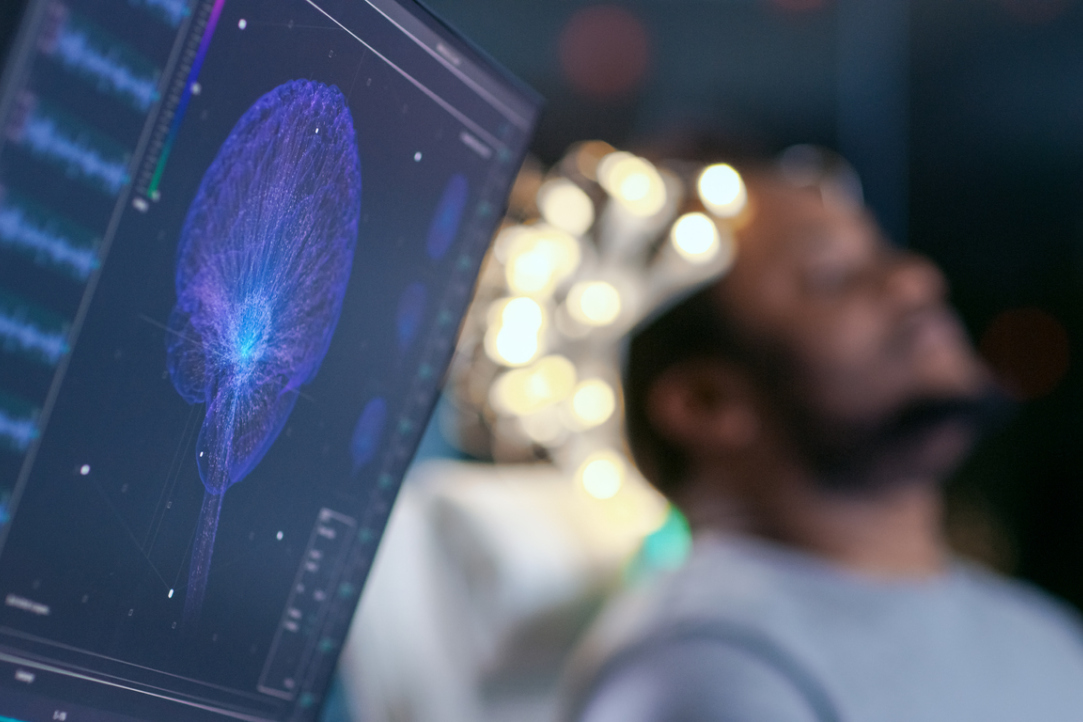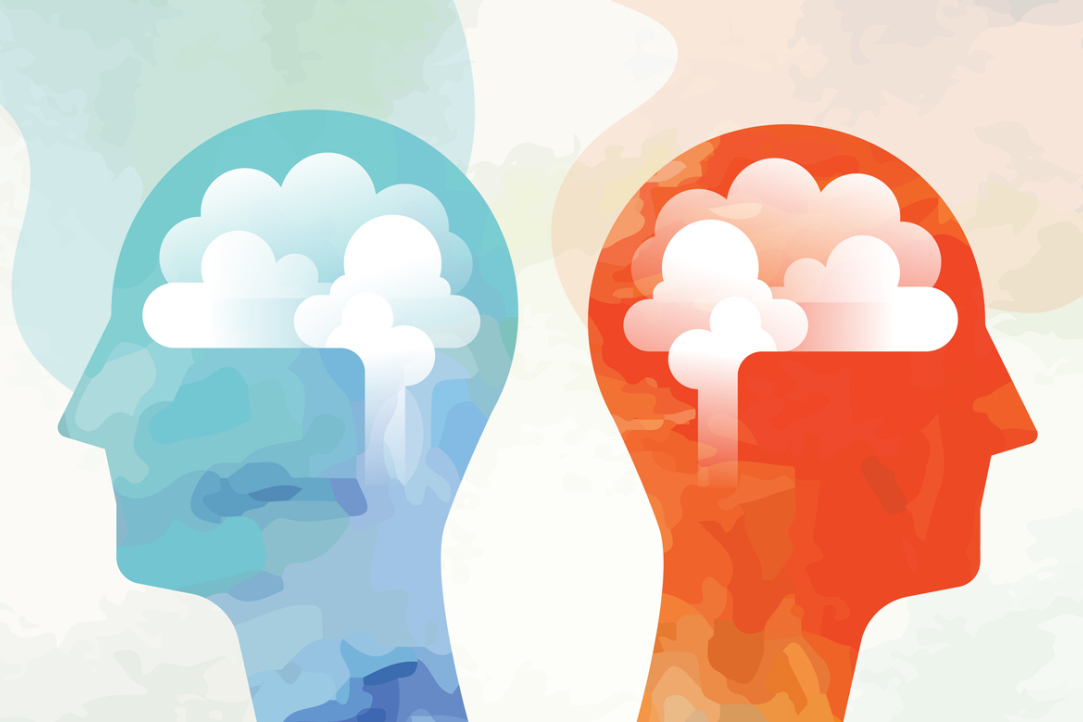
Researchers Uncover Specific Aspects of Story Comprehension in Young Children
For the first time, psycholinguists from the HSE Centre for Language and Brain, in collaboration with colleagues from the USA and Germany, recorded eye movements during a test to assess narrative skills in young children and adults. The researchers found that story comprehension depends on plot structure, and that children aged five to six tend to struggle with questions about protagonists' internal states. The study findings have been published in the Journal of Experimental Child Psychology.

Scientists Find Out Why Aphasia Patients Lose the Ability to Talk about the Past and Future
An international team of researchers, including scientists from the HSE Centre for Language and Brain, has identified the causes of impairments in expressing grammatical tense in people with aphasia. They discovered that individuals with speech disorders struggle with both forming the concept of time and selecting the correct verb tense. However, which of these processes proves more challenging depends on the speaker's language. The findings have been published in the journal Aphasiology.

Scientists Discover Link Between Brain's Structural Features and Autistic Traits in Children
Scientists have discovered significant structural differences in the brain's pathways, tracts, and thalamus between children with autism and their neurotypical peers, despite finding no functional differences. The most significant alterations were found in the pathways connecting the thalamus—the brain's sensory information processing centre—to the temporal lobe. Moreover, the severity of these alterations positively correlated with the intensity of the child's autistic traits. The study findings have been published in Behavioural Brain Research.

Humans, Bots, and Digital Twins: Year-End Results of the Strategic Project 'Human Brain Resilience'
HSE University hosted a joint research seminar to review the 2024 results of the Strategic Project 'Human Brain Resilience: Neurocognitive Technologies for Adaptation, Learning, Development and Rehabilitation in a Changing Environment.' The event showcased the progress and outcomes of fundamental and applied projects focused on developing technologies for neurodiagnostics, neuroadaptation, and neurorehabilitation—collectively known as 3N technologies. The objective is to develop tools that can help prevent neurogenic and psychiatric disorders or alleviate their consequences.
.jpg)
Russian Scientists Create Biomimetic Algorithm to Find Epileptogenic Areas of the Brain
Researchers from the HSE University Centre for Bioelectric Interfaces have designed a new method for detecting diagnostic markers of epilepsy, called interictal spikes, using EEG and MEG. Capable of accounting for various errors and artefacts, this method constitutes a valuable addition to the arsenal of means for automatic analysis of electrophysiological recordings in epilepsy patients, especially when the data are noisy. Precise localisation of epileptogenic cortical structures can enhance the effectiveness of neurosurgical interventions. The study was published in the Journal of Neural Engineering.

Why Understanding of Texts Worsens with Age
Psycholinguists from the Centre for Language and Brain, HSE University, have found that to predict semantic relations between words when reading, older adults use their knowledge of the world instead of grammar more often than young adults. Reliance on the meaning of individual words instead of accurate grammar analysis allows for faster information processing, but sometimes causes misinterpretations. The study has been published by the Quarterly Journal of Experimental Psychology.

Towards Finding Practical Solutions to Socially Significant Healthcare Problems
The Centre for Language and Brain in Nizhny Novgorod started operations in September 2020. Today, it is comprised of a team of linguists - teachers and students - who are researching the relations between speech and parts of the brain. The Director of the Centre, Natalya E. Gronskaya, spoke to the HSE Look about how the neuro-linguistic laboratory appeared in Nizhny Novgorod, as well as current tasks and prospects the Centre can offer the students and the region.

Can the Brain Resist the Group Opinion?
Scientists at HSE University have learned that disagreeing with the opinion of other people leaves a ‘trace’ in brain activity, which allows the brain to later adjust its opinion in favour of the majority-held point of view. The article was published in Scientific Reports.

Movement Recovery after Stroke Depends on the Integrity of Connections between the Cerebral Cortex and the Spinal Cord
A team of scientists, with the first author from the HSE University, were investigating which factors are the most important for the upper limb motor recovery after a stroke. The study is published in Stroke, the world's leading journal for cerebrovascular pathology.
Brain in Space: What Happens to the Human Nervous System in Weightlessness
While Roscosmos is discussing future manned flights to Mars, NASA plans to open the International Space Station for commercial tourism, and SpaceX is testing its Starship Mars prototype, scientists are seriously concerned about the impact of prolonged stay in space on the human body. While the effects of weightlessness on bones, muscles and the vestibular system are well known, how the human brain copes with microgravity has yet to be fully examined. IQ.HSE has compiled the latest research on this topic.


Submission Deadline: December 20, 2025